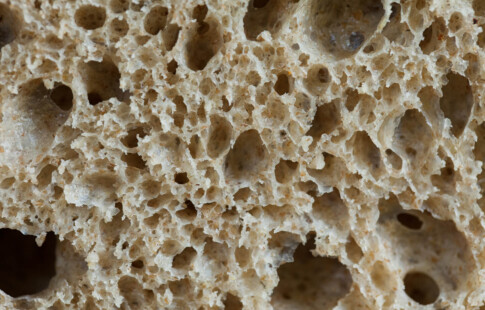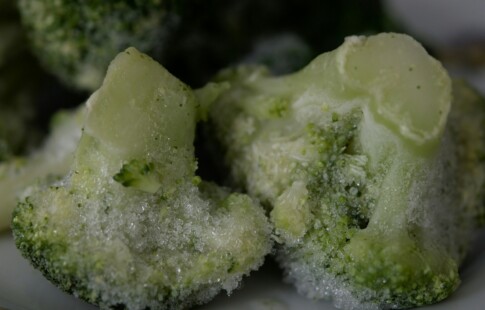
How Can a Vegetarian Diet Impact the Environment?
We are reader-supported. When you buy through links on our site, we may earn affiliate commission.
In this green era, many individuals strive to shrink their carbon footprint. Some invest in electric cars or install solar panels on their roofs, while others turn to their diet. We know the ingredients that lie on our plates can preserve our health, and they do the same for the planet. Going vegetarian has a positive environmental impact.
When we stroll down the aisles of the grocery store, we typically let our gut steal the show. And as delicious as hamburgers and bacon are, the Earth would rather us leave them on the shelf. Each meat product we purchase has a significant impact on the environment.
Environmental Harms of Meat
As we bite into a game-day hotdog topped with our favorite condiments, we are more concerned with the flavor than the environmental effects. This lack of awareness leads consumers to make uneducated dietary decisions, contributing to degradation. Fortunately, some ecological understanding combined with consumption alterations may successfully decrease an individual’s footprint.
Methane
Methane is a greenhouse gas predominantly sourced from cows. Cattle release methane through respiration, which travels up into the atmosphere. In the air, this element contributes to the enhanced greenhouse effect.
The enhanced greenhouse effect signifies the human contributed gases entrapment of heat in the atmosphere. Earth’s natural process allows elements to distribute a sufficient amount of heat throughout the planet to sustain life. When pollutants invade this space, they convert the sun’s energy quickly into heat and hold it in the atmosphere for extended periods.
As greenhouse gases trap heat in the air, the Earth’s temperature rises over time. The media targets carbon dioxide as the bad boy of air pollutants, but methane is 25 times more effective at trapping and reflecting heat in the atmosphere. One positive environmental impact of going vegetarian is reducing overall cattle emissions.
Nitrous Oxide
Livestock requires adequate grazing land to preserve their health and well-being. To maintain this space, farmers place synthetic fertilizers in the soil that prevents nutrient depletion. When fertilizers mix with dirt, it releases nitrous oxide.
Nitrous oxide is another greenhouse gas that pollutes the atmosphere and degrades the sustainability of animal products. Around 53% of livestock emissions derive from nitrous oxide. When you purchase chicken, pork or beef at the store, you contribute to the release of harmful air pollutants.
Feed Production
Individuals often overlook the environmental impact of livestock consumption. Feed production requires the use of pesticides, fertilizers, fossil fuels and water. All of these resources degrade the environment when used in excess. America’s high demand for meat contributes to an extreme reliance on the depletion of these resources.
Growing enough food to sustain all farm animals also contributes to deforestation. The majority of pig feed consists of soybeans, which Brazilian farms clear the rainforest to grow. Animal feed production consumes a third of total arable land.
How A Vegetarian Diet Can Help
When you reduce your consumption of animal products, you limit the amount of methane and nitrous oxide polluting the atmosphere. Adopting a vegetarian diet saves the same number of emissions as taking one SUV off the road for six months. The protection of the atmosphere can reduce environmental degradation and preserve the climate.
Water conservation is another vegetarian environmental impact. It takes less water to produce plant-based products than animal counterparts. You could fill your bathtub 6.5 times with the amount of water it takes to make one 8 oz chicken breast.
Limiting your animal product intake also preserves natural spaces. Without as many animals to feed, less land will be clear-cut to grow their feed. A vegetarian diet helps individuals transition into an entirely plant-based diet which also reduces grazing land.
The Difference Between a Vegetarian and Vegan Diet
Someone who eats entirely plant-based, meaning no meat, poultry, dairy, eggs or seafood, is vegan. A vegetarian consumes dairy and eggs, excluding animal meat and seafood. Vegetarians still rely on the production of cattle for dairy and chickens for eggs.
When switching to a vegetarian diet to shrink your carbon footprint, consider limiting your dairy intake. Because methane causes such severe environmental harm, it is essential to reduce your contribution to its emission. An ovo-vegetarian is a more sustainable diet that includes eggs and excludes meat, poultry, seafood, fish and dairy.
Is a Vegetarian Diet Worth It?
The short answer is yes. A vegetarian diet is a step in the right direction to reducing the size of your footprint. The diet is less detrimental to the environment because it reduces your reliance on livestock production.
When you reduce your contribution to greenhouse gas emissions and deforestation, you may lead a more sustainable life. You can continue to limit your contribution to environmental harm by challenging yourself to eat more plant-based meals.
Share on
Like what you read? Join other Environment.co readers!
Get the latest updates on our planet by subscribing to the Environment.co newsletter!
About the author

Jane Marsh
Starting from an early age, Jane Marsh loved all animals and became a budding environmentalist. Now, Jane works as the Editor-in-Chief of Environment.co where she covers topics related to climate policy, renewable energy, the food industry, and more.





